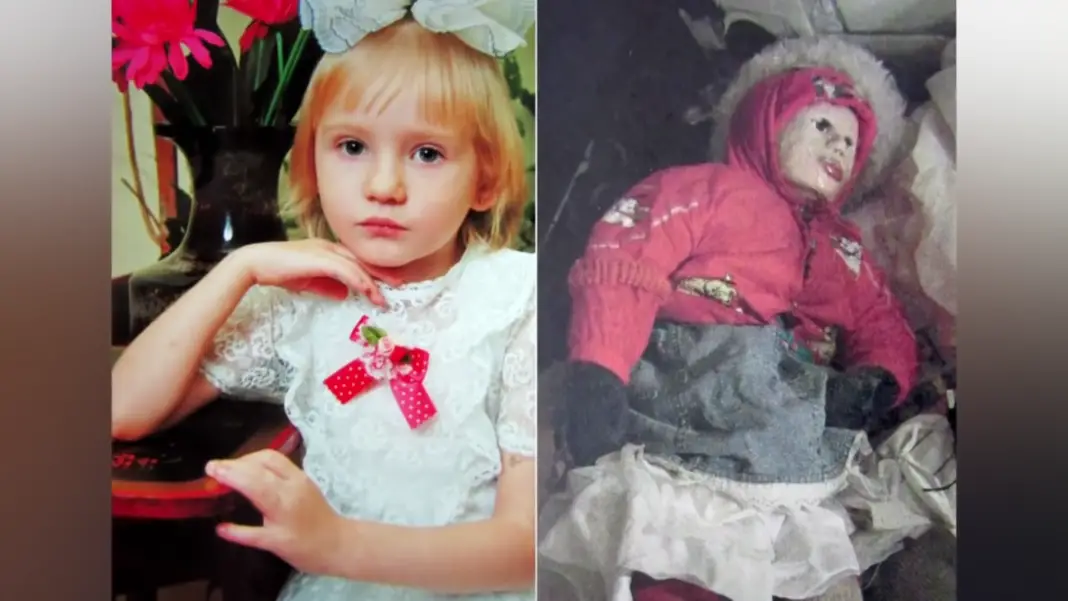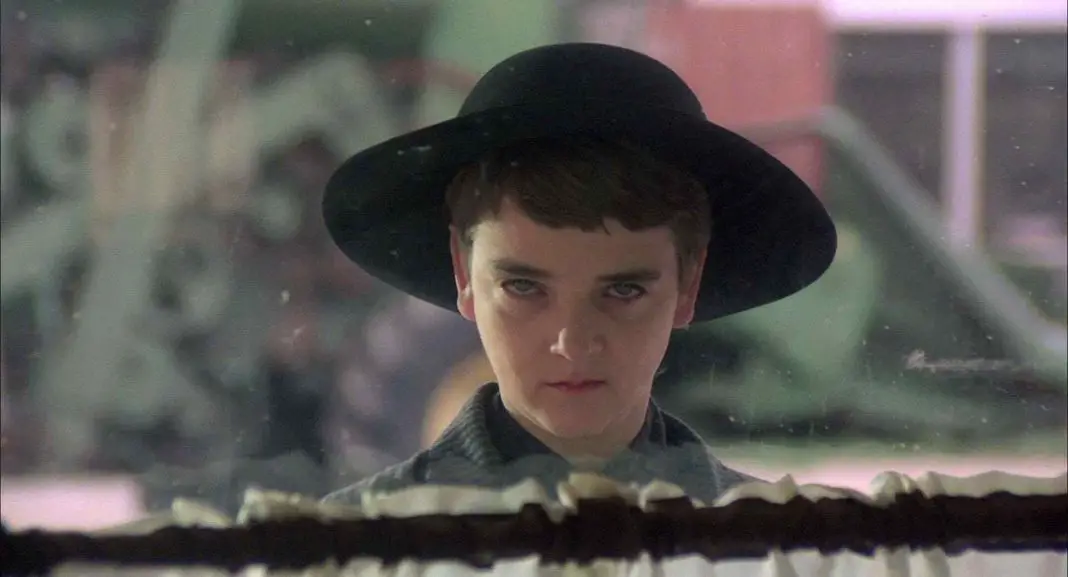Lucky McKee‘s May is occasionally referred to as Carrie for the next generation, which is a term often tacked on to horror movies with a female protagonist. Other than the fact that their lead characters are female and outsiders, the two films could not be more different. Carrie is, to its core, about high school and teenage cruelty. May, on the other hand, explores something that is in some ways more horrific: becoming an adult.
The story follows a lonely girl who desperately wants the one thing she has never had: a friend. From childhood into early adulthood her only comrade has been her doll, Susie. And even this friendship is strained, as Susie is a doll encased in glass that May has never been able to touch.
Like many films of its type, May explores a coming of age story. But it is very different, refreshingly so, from the young adult coming of age. May’s transformation is completely different from a pubescent one. It’s about being on your own for the first time, when you have a clean slate and are forced to not only find out who you really are but define it on your own terms.
May’s friendly nature is extreme, but is not entirely dissimilar to what it is like to enter the adult world for the first time and are trying to make new friends. You have to actively seek people out if you want to get to know them and always present yourself in an approachable manner. It also means that everything you don’t like about yourself might accidentally become what you wind up focusing on.

To May, the world is a scary, confusing place and one that she does not really understand. It’s daunting to her and is often cruel. It’s not that people are overly mean to her. Instead, unless she’s embarrassing herself, people simply don’t notice that she’s there. This is much more common in life on your own for the first time.
May’s transformation is about acknowledging self-worth and discovering confidence. She becomes accepting of herself and from there sets about her mission of harvesting body parts with relative ease. While May spends most of the movie under the thumb of either her boss or her unrequited crushes, no one is really a match for her once she begins to come into her own. In fact, no one even really has the chance to put up much of a fight.
 Once May realizes what it is she is setting out to do, she simply goes about doing it. Her goal is almost an uneasy parallel to the discovery of one’s professional ambition. As you start working in the real world and begin to discover what you want to do with your life, it changes everything. With ambition comes a newfound confidence whether it be artistic or professional. In May’s case, it is artistic, but still quite unusual. She is setting out to make a new friend from the best body parts of the people around her, but the point is nonetheless the same.
Once May realizes what it is she is setting out to do, she simply goes about doing it. Her goal is almost an uneasy parallel to the discovery of one’s professional ambition. As you start working in the real world and begin to discover what you want to do with your life, it changes everything. With ambition comes a newfound confidence whether it be artistic or professional. In May’s case, it is artistic, but still quite unusual. She is setting out to make a new friend from the best body parts of the people around her, but the point is nonetheless the same.
Angela Bettis is superb at playing May’s transition into power and confidence throughout the movie. She is meek, witty, angry, and even when she’s come into her own all of those traits are still there. Her character does not change, as they so often do in this type of story. Instead she simply becomes a stronger, more capable version of herself.
Despite her antagonistic nature, May is none the less an overtly feminist film about a young woman’s entry into the scary adult world. In some ways it’s a traditional dog eat dog message, although taken to a somewhat more literal degree. May presents a world that–while it can be fun and quirky—can also be quite mean and to survive in it, you have to be able to push back.
Of course, it’s a metaphorical story. May is not suggesting that you harvest body parts if you decide that is what you’ve always wanted to do. It simply shows how a quiet and repressed woman can become something much stronger without losing those aspects of herself in the process. It’s about adapting to the adult world, but it’s not a movie about fitting in. It’s obvious from the start that May is probably not going to fit in anywhere, but that doesn’t mean she can’t be comfortable.
 In the end, May even seems to change reality to suit herself and what she’s been working toward. As you grow older and learn to live in the world, you often change your views, your outlook, the way you see the space that you live in. In May’s case it is more extreme as she changes her entire perception of reality once her new friend has been assembled. But everything in the film is heightened, as is the case with much of the genre in general.
In the end, May even seems to change reality to suit herself and what she’s been working toward. As you grow older and learn to live in the world, you often change your views, your outlook, the way you see the space that you live in. In May’s case it is more extreme as she changes her entire perception of reality once her new friend has been assembled. But everything in the film is heightened, as is the case with much of the genre in general.
May is a dark, satirical coming of age story for twenty-somethings in that gray area of determining exactly what they’re supposed to be doing. It’s funny, relevant and sincere and those things are what make it succeed more than anything else. It’s about discovering new sides of yourself and embracing the sides that you always knew were there but never really touched on, aspects of the self that are hidden behind a slowly cracking glass and struggling to break free.







